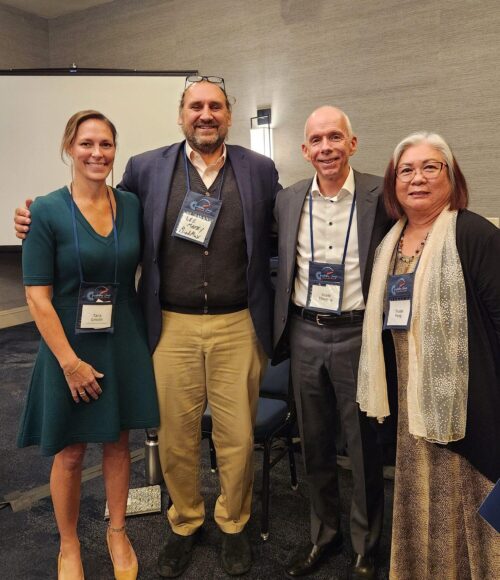3 Key Themes at the CFES Brilliant Pathways Conference

3 Key Themes at the CFES Brilliant Pathways Conference
CFES Brilliant Pathways held its 32nd annual conference November 6-7 in beautiful Burlington, Vermont. Leaders in education, business, government, and philanthropy (plus 100 students!) gathered to discuss opportunities for enhancing college and career readiness during a period of accelerating change. I was fortunate to attend this event myself.
You might be wondering why someone like me, whose company focuses on higher education marketing and enrollment, would attend a K-12 conference. One reason is that it provides valuable insight into what the next generation is thinking about. (Spoiler alert—a lot of the same topics that dominate higher education discussions: microcredentials, AI, and the impending demographic cliff.)
Another reason is that CFES, in particular, focuses on creating pathways to education for students in underserved populations through initiatives like mentoring and teaching essential human skills that AI can’t replace. MindMax shares this focus on creating pathways, in the context of continuing education and higher ed.
The students CFES serves may go on to enroll at schools MindMax is partnered with, whether for a degree or a microcredential. Due to a number of factors, including socioeconomic status, these students will be at a higher risk of stopping out. MindMax is currently prioritizing compassionate reenrollment efforts targeting stopout students.
Clearly, there is synergy between what CFES is doing for K-12 students and what MindMax is doing for adult learners.
I’ve always viewed learning as a holistic lifelong process, as I explored in the MindMaxing podcast series “Adolescence to Adulthood.” Ideally, people learn for their whole lives, from K-12 to adult education. Higher education leaders must be thinking about who they’re bringing into their environments and whether the environments they’re creating meet students’ needs.
Key Themes: Accelerated Change, Alternative Pathways to Success, and the Demographic Cliff
Here are a few key themes that emerged at the conference.
1. Preparing for accelerated change
It’s a commonly understood concept that today’s pace of change is the slowest it will ever be. If I’m being honest, I find that a bit daunting, even as someone who has continually embraced new technologies and approaches. The world already feels like it’s moving pretty damn fast.
Our job as parents, and as educators, is not to prepare the road ahead for our kids but to prepare them for the road ahead. That may sound pithy, but it speaks to a significant mindset shift in acknowledging that only so much is in one’s control.
The world is complicated, and that’s certainly not going to change, especially as the tidal wave of AI approaches. People will need human skills like emotional intelligence, communication, problem-solving, and critical thinking to thrive in this world.
2. Embracing alternative pathways to success
In the past, the conference focused primarily on getting people to college. But a critical shift has occurred. Now, attendees collectively acknowledge that, although postsecondary education is important, obtaining a 2-year or 4-year degree isn’t for everyone.
How can we create an environment and structured scaffolding to enable people to succeed in ways that matter to them and prepare them for a meaningful future? The concept of a meaningful future could look different for everyone—from earning enough money to achieve a certain degree of financial security to making professional sacrifices to ensure a good work-life balance.
I suspect AI is going to quickly and forcefully push people to address existential questions about what it means to be human and how they can seek fulfillment.
3. Anticipating the demographic cliff
The impending demographic cliff will significantly impact higher education and leave schools competing for a smaller pool of candidates. Due to population decline, there will be fewer high school graduates in the years to come.
But that’s not the only issue. Americans, in general, are expressing ambivalence toward college as they struggle to see the value of a 4-year degree. Fewer young men, in particular, are attending college. These trends will likely magnify the impact of the demographic dropoff on schools, who will need to make smart decisions about their programming and value propositions to attract students.
Go Forth and Realize Your Potential
One exciting thing that set CFES apart from other conferences is that there were actual students in attendance—about 100 high school students from the region. There was a terrific motivational speaker who talked to the students and all the people in the room who have supported them about the importance of realizing one’s potential.
I couldn’t agree more with this sentiment. At MindMax, our role is to help schools better realize the potential for achieving their missions and serving the communities around them. Connect with us to learn more about our higher education marketing and enrollment solutions.